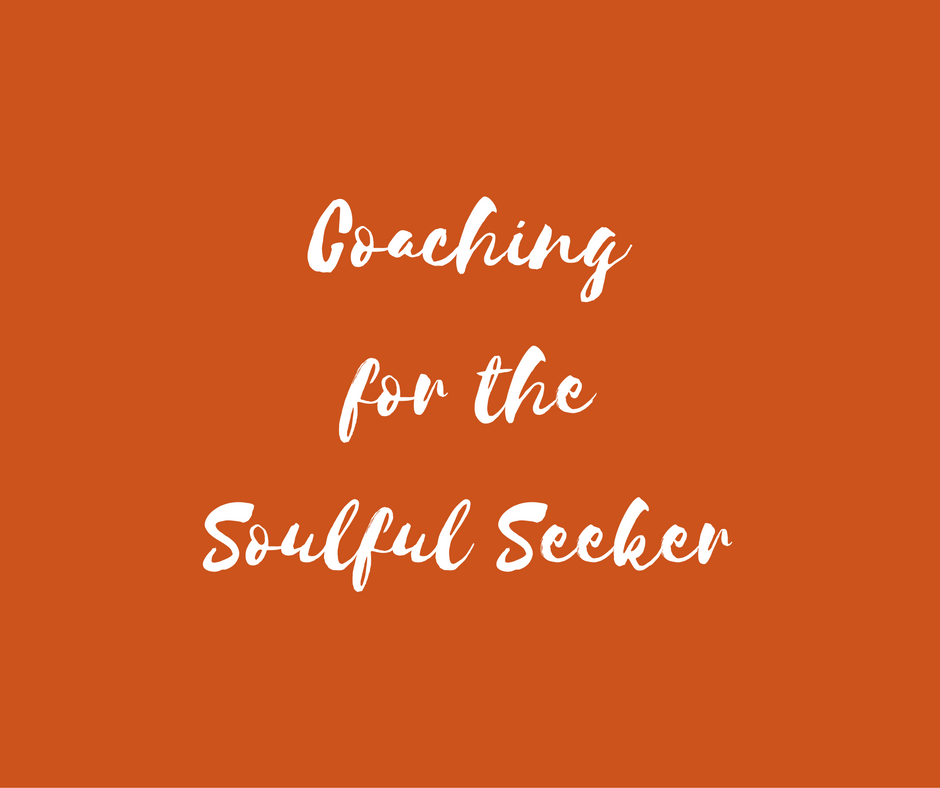How to Ignite Change in Others
 We all need an extra dose of support at various stages in our lives, and in a society without strong social connections or elder-apprentice relationships in place, we often have to "outsource" that supporting role to therapists, psychologists, and coaches.
I'm a coach, and while I don't love labeling what I do in such structured terms, you have to start somewhere. I use the term "Career Coach" to describe my focus on supporting people who want to thrive in their worklives.
We all need an extra dose of support at various stages in our lives, and in a society without strong social connections or elder-apprentice relationships in place, we often have to "outsource" that supporting role to therapists, psychologists, and coaches.
I'm a coach, and while I don't love labeling what I do in such structured terms, you have to start somewhere. I use the term "Career Coach" to describe my focus on supporting people who want to thrive in their worklives.
It's easy to recognize a good coach when you see one, but not always easy to describe what makes those coaches different from others who use the same label but just don't ignite the same thing inside of us.
So, I've been doing some research at HR Think Tank, a program I co-lead, and also in my Facebook community. I asked people to describe the attributes of their favorite mentors or coaches, and some themes appeared. Getting this feedback has been so helpful to me in my work, and I wanted to share it with you today so that you can use it either as you coach others, or as you look for someone worthy of coaching you.
The three categories below are the primary ways that good coaches ignite change within people - change that already wants to take place but needs space to come alive.
Three Powerful Ways You Can Ignite Change:
1. They have personal integrity and model authenticity.
Good coaches and mentors walk the walk, and it's not always pretty. These people will be the ones to speak the truth in a room full of liars, they'll be working on their own development and well-being, and when you meet them, you'll know that what you see is what you get.
They make you feel at ease because you know this person will do the right thing, be open with you, and give you the space to show up completely and fully as yourself.
2. They're appropriately vulnerable.
Being vulnerable is part of being authentic, but it's so important that I'm pulling it out to stand on its own. A good coach gives you the freedom to try things, make mistakes, and ask "stupid" questions. They do this because they're open with you about the mistakes they've made in the past and even about the things they struggle with currently.
They know the line between showing vulnerability to support your growth and vulnerability to receive inappropriate validation or affirmation. A good coach ignites change in us because they show us where they've been stuck in the past and how they got through it. That requires having enough courage to be vulnerable and shed the need to be "the expert" in the room.
 3. They're genuinely curious about you.
3. They're genuinely curious about you.
I met with a coach a while ago who is pretty well-known in my community and who I believe really cares about the work she does. That said, I felt like shit after meeting with her, and you know why? It was because she launched into coaching me before she even really knew anything about me.
It doesn't feel good to get advice from someone who doesn't take the time to understand us first, and a good coach takes the time. A good coach uses whatever tools she has to draw you out, learn how you see the world, and figure out what you - soulful you - wants to be and do in the world.
Here are a few things missing from the list of feedback I received: credentials, the number of hours a coach has practiced, the degrees they hold, the rate that they charge, their age, their job title...I could go on.
What matters to the people who gave me this feedback, and what matters to me, is the connection that a coach can create. That connection, when it includes the three big attributes above, is what sparks change in us.
Hearing from folks as part of this mini research project has made me even more motivated to be this kind of coach.
If you coach others as part of your work as a manager, mentor, or even as their peer, I hope you'll focus on these attributes as well and release those stories that tell us we're not "good enough" to help others.
 If you need some support in your career right now and something in this post resonated with you, I'd love to talk more.
If you need some support in your career right now and something in this post resonated with you, I'd love to talk more.
After November, I won't be taking on any additional 12-week coaching clients until May 2017, so this is the right time to reach out if you think you could use some help getting to the next stage in your worklife.
